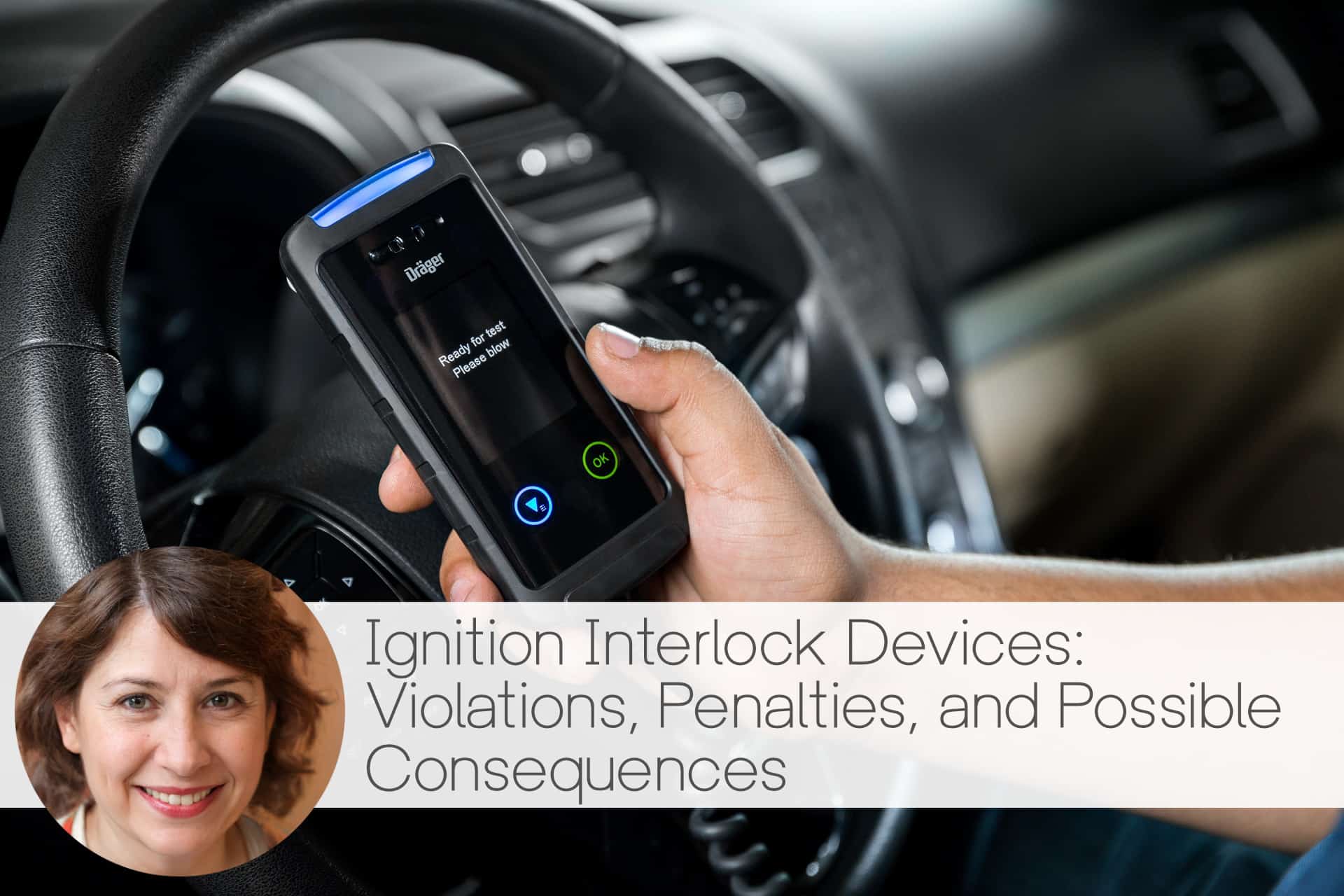Ignition Interlock Devices: Violations, Penalties, and Possible Consequences
Have you been charged with a DUI? Then you’re well aware of the serious consequences that come with a DUI offense.
Sentencing for a DUI conviction can vary depending on state laws and the severity of the DUI, but most states require DUI offenders to pay fines, take DUI classes, and install an ignition interlock device on their vehicles, even for first-time DUIs.
If you have been ordered by the court to attach an ignition interlock device on your vehicle to keep some of your driving privileges, it’s in your best interest to learn how an ignition interlock device works and adhere to the rules of the mandate. Violations against your court-ordered interlock device can have severe implications.
What are Ignition Interlock Devices?
Ignition interlock devices are essentially in-car breathalyzers that keep the vehicle from starting if alcohol is detected on the driver’s breath. If the gadget detects that your blood alcohol concentration (BAC) is above the state-mandated limit, you will not be able to start your car.
IIDs have proven to be highly effective at preventing drunk driving. In fact, all 50 states and the District of Columbia have approved legislation mandating the IID installation in the vehicles of DUI offenders.
How Ignition Interlock Devices Work
The ignition interlock device is hooked into the ignition of your vehicle. Every time you attempt to start a vehicle with an IID, you will be required to blow into the device’s tube. If the equipment detects the presence of alcohol in your breath, you will not be able to start and operate your vehicle.
If you pass the ignition interlock device’s initial breath test, you will be able to start and drive your car. However, the device is designed to require rolling retests every few minutes. During these random intervals, you are expected to pull over and perform another breath test. If you fail to do so, your horn may beep or an alarm may sound to prompt you to switch off your vehicle.
Most ignition interlock systems feature lockout periods, preventing you from starting your car if your blood alcohol content is above the threshold level. Typically, the lockout period will increase with every breath test failed.
Common Ignition Interlock Device Violations
Again, some of the laws and regulations that cover ignition interlock devices may vary from state to state. However, there are certain violations that apply regardless of state or where you were convicted of DUI. These are:
- Breaching a court mandate to install an ignition interlock device on your vehicle.
- Driving a vehicle without an ignition interlock device.
- Requesting another individual to blow into your IID.
- Trying to remove or disable the ignition interlock device.
- Attempting to bypass or tamper with the ignition interlock device.
- Failing the initial breath test.
- Failing or missing a rolling retest.
- Not reporting a lockout.
- Missing periodic recalibrations.
- Not paying your monthly service fees.
Penalties and Possible Consequences for IID Violations
The IID violations mentioned above have corresponding penalties and consequences, depending on the state you’re in. But generally, failing multiple breath tests will result in a permanent vehicle lockout. In such a case, you’ll have no choice but to call a towing company to bring your car to an IID service center for unlocking.
Other possible penalties and consequences that may result from violating your ignition interlock device are as follows:
- Revocation of your restricted license and removal of your limited driving privileges.
- Reinstatement of the complete suspension period, with no driving privileges at all
- Charges for driving on a suspended or revoked license.
- Vehicle seizure/impounding (if the IID is not installed correctly).
- Extension of your mandatory IID requirement period.
- Additional fines, possible jail time, and more.
Ignition interlock device violations can have serious repercussions. States made it a point to impose harsh penalties to discourage drivers from getting behind the wheel after consuming alcohol.
The good news is that if you abide by the rules of your IID requirement, you will be able to finish your restricted driving term without any extensions or fines. Once completed, you may then apply for the removal of your IID and the reinstatement of your regular driver’s license.









